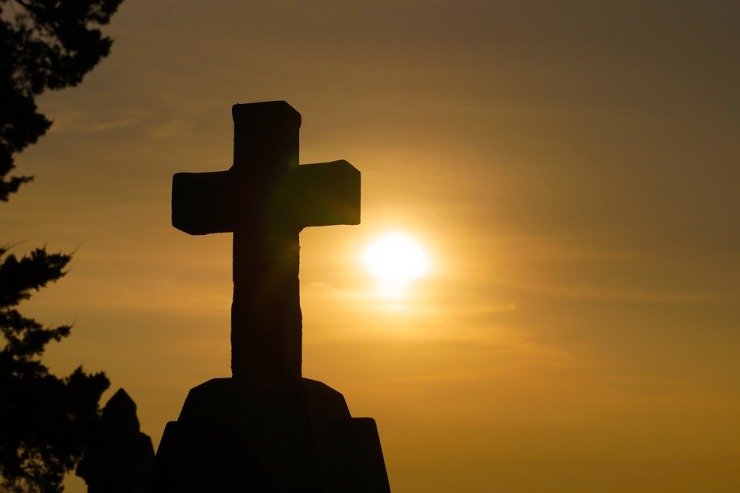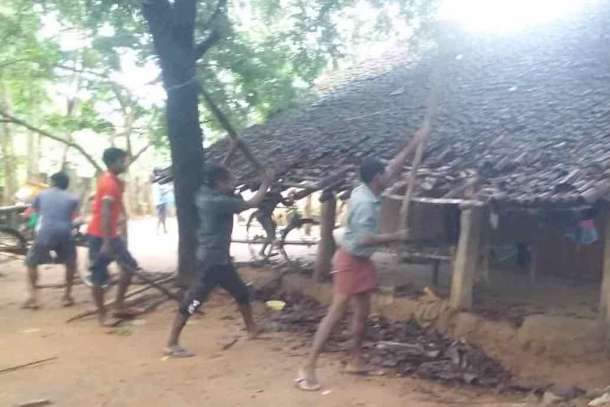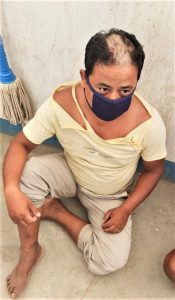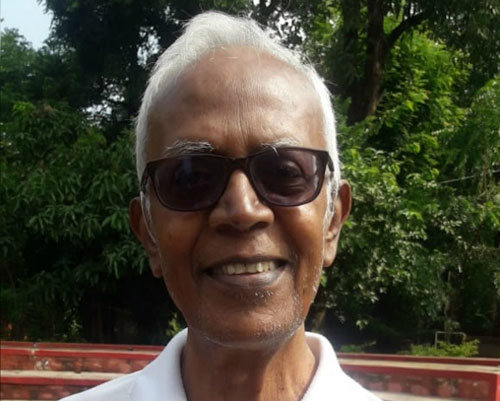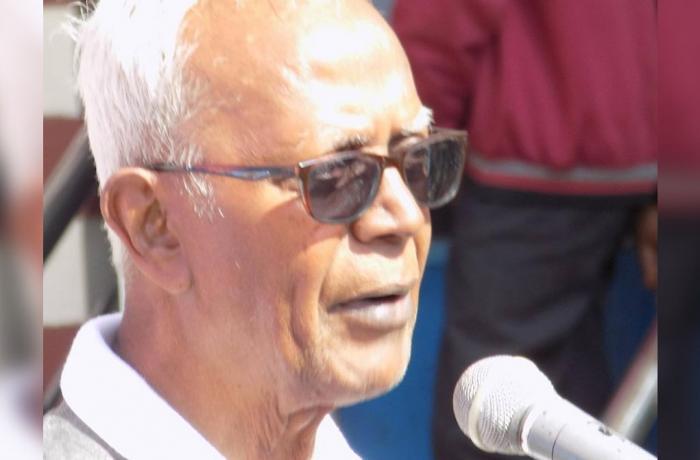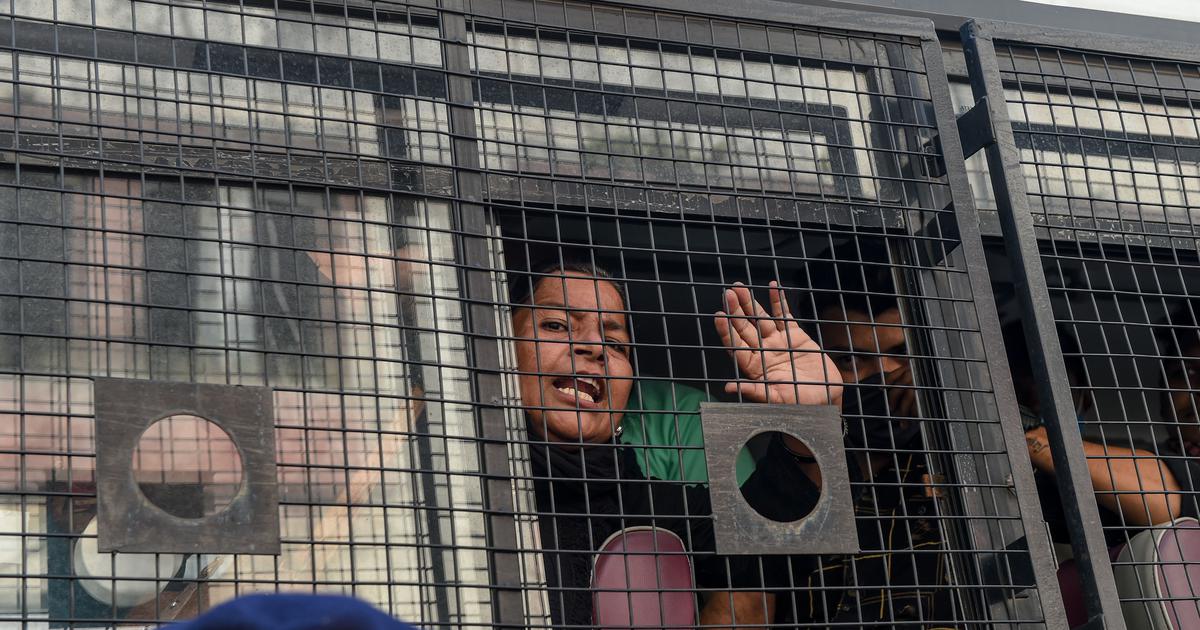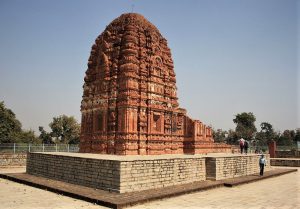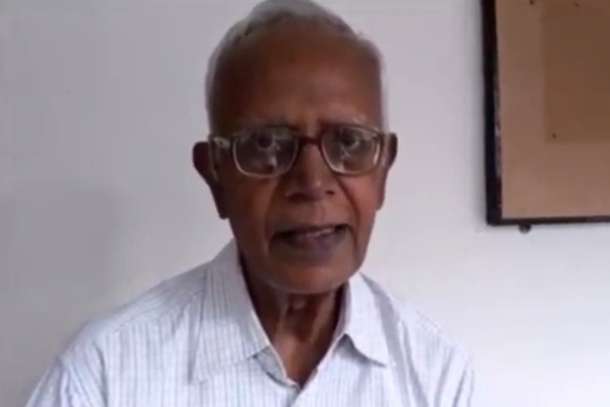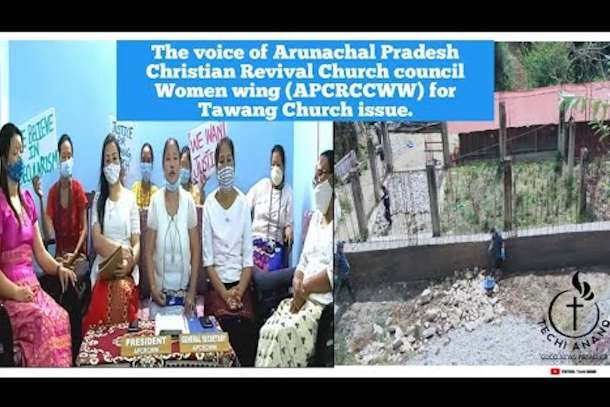Government authorities in Karnataka remove 15 crosses from hilltop
In a six-hour operation led by government officials on September 23, 15 crosses were removed from Susai Paliya Hill in Chikkaballapur, Karnataka. The operation was conducted following the order from Karnataka High Court that found the crosses illegally placed on government land without prior approval from authorities. More than 300 police and revenue officials gathered at St. Joseph's Church in Susai Palya and removed a 32-meter cross that was on the hilltop along with 14 other seven-meter crosses that were on the way to the hilltop. According to local parish priest Father Antony Britto Rajan, "The government officials acted arbitrarily without any prior notice." "We have been using the space for more than five decades for praying the Way of the Cross, especially during the Lenten season," he told UCA News. The local parish mentioned that people from other religions also visited the hill for prayer but "there was no problem from anybody." Though the police officials claimed to be following the court orders, they did not show any such order, said Father Rajan. The Christian leader plans to appeal against the court decision and take legal action to restore the crosses. But, he admits that finding the necessary documents may be difficult. Peter Machado, Archbishop of Bangalore,
Indian Christians demand police action against attackers
Christian leaders say Chhattisgarh is among the three worst states for persecution of Christians A group of non-Christian tribal people attack Christian homes in a village in Inda's Chhattisgarh state on Sept. 23 after Christians refused to follow the traditional Sarna religion. (Photo supplied) Christian leaders have urged the government in India's Chhattisgarh state to act against those who attacked 16 Christian families and destroyed their houses for refusing to abandon their faith. Even after a week, state police have not registered Christians' complaint against the tribal group that attacked them on Sept. 22 and 23, said Pastor Moses Logan. "Police refused to register a first information report and are forcing the persecuted to compromise with the perpetrators of the crime," Pastor Logan told UCA News on Oct. 2. A crowd of people opposed to indigenous people following Christianity vandalized 16 houses of tribal Christians in three villages — Kakrabeda, Singanpur and Tiliyabeda — in the state's Bastar region. "They also assaulted women and children, so many ran into the forest to save their lives," the pastor said. He said villagers suspected trouble when they noticed unusual movements and gatherings in the villages. They informed police about them three days before the attack. "But police took no action, no protection was given," he said. Crowds of men used
Jharkhand: tribal Christians attacked on the basis of false charges of slaughtering a cow
The victims were beaten, had their heads shaved, and were forced to sing Jai Shri Ram (Victory to Lord Ram). The attackers came from neighbouring villages. Police arrested four people, and are still looking for another ten. For Christian activist, extremist groups attack using false accusations and spurious evidence, favoured by radical local administrations. Delhi (AsiaNews) – Using a baseless accusation of slaughtering a cow, a group of ‘sacred crow vigilantes’ attacked tribal Dalit Christians in a village in the state of Jharkhand, this according to Sajan K George, president of the Global Council of Indian Christians (GCIC) The victims were beaten, had their heads shaved, and were forced to sing Jai Shri Ram (Victory to Lord Ram). The incident took place on 16 September, George told AsiaNews, but it became public only last Friday after activist and former district council member Neel Justin Beck reported it. In India, cows are considered sacred and are a sensitive issue for the Hindu majority. There are frequent violent attacks against minorities who slaughter animals for the meat; the main victims are usually Muslims, but Christians have been targeted as well. This time the attack involved seven Christians living a tribal area in Jharkhand, who were accused without proof of slaughtering an animal. Deepak Kullu, a
Beaten Christians Tonsured, Paraded in India
Hindu extremists falsely accuse them of eating cow beef. After beating and parading Pastor Raj Singh along with four other Christians in eastern India, Hindu extremists were tonsuring them to further ridicule them when one cut the pastor’s head. “While shaving my head, the razor cut my skull, and blood oozed out,” Pastor Singh said of the Sept. 16 attack in Jharkhand state. “A man standing nearby pointed out the cut and asked the man shaving my head to be careful, to which he promptly answered back saying, ‘This Christian should be grateful that I am only using the razor on his head and not on his neck.’” After shaving their heads, the mob tied garlands of old shoes and slippers around their necks and continued parading them from one area of Bherikudar village, in Simdega District, to another. The Hindu extremists told them to chant “Jai Shri Ram [Victory to god Ram]” and, when the Christians did not comply, beat them with wooden sticks, he said. “Some of us chanted, to escape the beating from time to time,” Pastor Singh said. “Whoever did not chant was immediately beaten by sticks. They also had long wooden handles of large iron picks with which they hit
Jesuit activist jailed, massive protests over arrest continue
The arrest and imprisonment of an 83-year-old Jesuit priest in a two-year-old case have led to massive protests by people’s organizations, activists, intellectuals and concerned citizens from across India. The National Investigation Agency (NIA), a federal body to counter terror activities in the country, October 8 arrested Father Stanislaus Lourduswamy from his residence at the Bagaicha Campus near Ranchi, capital of Jharkhand state in eastern India. According to the latest information, the agency October 9 took the priest to Mumbai, in western India, and presented him before a court that sent him to judicial custody until October 23. The arrest of “Stan Swamy is a gross violation of human rights and democratic norms,” says an October 9 statement endorsed by more than 2,000 people representing various groups in India. They have appealed Jharkhand Chief Minister Hemant Soren to oppose the priest’s arrest. The statement hailed Father Swamy as “a valued and public spiritedness citizen who has worked for Adivasi rights since decades in Jharkhand” and decried the “inhuman and insincere act of the NIA authorities.” The priest’s arrest, it adds, “stands out for its sheer vindictiveness” since the priest had “fully cooperated with the investigating officers” who questioned him at his residence for more than 15
Indian Catholics call for the immediate release of Fr. Stan Swamy
Appeal by the Indian Bishops' Conference for the liberation of the Jesuit, arrested for alleged links with the Maoist rebels. Fr. Swamy has worked for decades to defend the rights of tribals in Jharkhand. Concerns for his health. The Indian Catholic community has always contributed to the building of the nation. New Delhi (AsiaNews) - On October 8 tribal activist Fr. Stan Swamy was arrested on charges of "Maoist terrorism". For over 50 years the Jesuit priest has been committed to defending the forest rights of the Adivasi in Jharkhand. For months he had been interrogated and faced with false evidence. Confreres, activists and members of the opposition to the Modi administration denounce his arrest as an "attack on the poor". Under the government of the Bharatiya Janata Party (Hindu nationalist), he was also accused of sedition. Below is the text of the appeal signed by Msgr. Felix Machado, Archbishop of Vasai and general secretary of the Indian Bishops' Conference. The Catholic Bishops’ Conference of India (CBCI) expresses its deep sorrow and anguish on the arrest of Fr Stan Swamy from his residence by the National Investigation Agency (NIA), accusing him of being related to the Bhima –Koregaon incident. Fr Stan Swamy, 83 years old, a Jesuit has spent a major
The twilight of Indian democracy
Protest and journalism are criminal acts, Parliament is irrelevant, duties supersede rights,and profanity flows from the ordinary. On October 8, Justice Sanjay Dhar of the Jammu and Kashmir High Court delivered a judgement that was remarkable in its ordinariness: it restated the law, common sense and the basic tenets of – what was once – the world’s largest democracy. The case he was called to adjudicate upon was a two-year-old story in the Times of India. The headline read: “Stone pelters in J&K now target tourists, four women injured.” It was ordinary journalism, but it led to a criminal case against the reporter for “making or publishing a statement or rumour creating fear or alarm”. The freedom of the press, said Justice Dhar, could not be imperiled on “grounds that are unknown to law” and “reporting of events, which a journalist has bona fide reason to believe to be true, can never be an offence”. Yet, this is what journalism in India has become: an offence against the state. Hectored, threatened, beaten Journalists in Kashmir bear the brunt of this belief, as they are hectored, threatened, beaten and imprisoned; it is state policy, explicitly stated, to discourage journalism that is “against the national interest”. In Uttar Pradesh,
Christian’s Hearing Damaged in ‘Reconversion’ Attacks in India
A Christian and his 20-year-old son have taken refuge at an undisclosed location since an attack on Sept. 2 in Chhattisgarh state left the father with permanent damage to his hearing, sources said. Jagra Kashyap, 45, and son Asharam Kashyap had to leave their families at home in Badrenga village, Bastar District, as they fear for their lives if they return, pastor Vishwanath Kawasi said. “Their families back home are also feeling unsafe, but if Kashyap and his son return there, they could be attacked any time again,” Pastor Kawasi told Morning Star News. Demanding that Kashyap and his son renounce Christianity and return to Hinduism, a mob of about 60 Hindu extremists stormed their home at 10:30 a.m. and struck the elder man’s ear until it bled while delivering severe blows to his son’s back, the pastor said. Doctors at the district government hospital said the impairment to his ear is permanent, and that he will need a hearing aid the rest of his life, according to an allied lawyer for legal advocacy group Alliance Defending Freedom India. Pastor Kawasi said more than 10 Christian families in the village have come under attack in the past month. “Only seven or eight members muster the courage to
Why did Indian police arrest Jesuit over terror conspiracy?
A screengrab from the video where Father Stan Swamy explained why police wanted him in a conspiracy case. Protests continue in several parts of India after Jesuit Father Stan Swamy, an 84-year social activist in Jharkhand state, was arrested on Oct. 8 on charges of having links with a banned Maoist terror group. In a video posted hours before his arrest, Father Swamy said that the federal agency combating terror activities — the National Investigation Agency (NIA) — had interrogated him for 15 hours during a span of five days."Now they want me to go to Mumbai, which I have said that I won't go," he said in the video, citing his advanced age and the pandemic as reasons for his preference to have further questioning through video conferencing.However, he was arrested and taken to Mumbai, the capital of Maharashtra state. A special NIA court in that city remanded him to judicial custody for 14 days on Oct. 9.His case is linked to the Bhima-Koregaon area in Maharashtra state, where a violent clash occurred on Jan. 1, 2018, in which one person was killed and several others injured. Following investigations, police alleged some nine activists, including Father Swamy, conspired to organize the violence and have links
Christians angry over blocking of church construction in India
A Christian group in the Indian state of Arunachal Pradesh is mulling a protest after the state government prevented construction of a church because it says it was illegal. Arunachal Christian Forum (ACF) has asked the state government run by the pro-Hindu Bharatiya Janata Party (BJP) to quickly resolve the issue in Buddhist-majority Tawang town. “The present government says that the church is illegal as it is on public land, referring to the Supreme Court order that bars construction of religious structures in public places, but that is not the case here,” Father Felix Anthony, spokesman for the Catholic Church in northeastern India, told UCA News. “People here who are for or against the construction of the church are not for disturbing the peace of the community that has been prevailing for years. People want the issues sorted out amicably. There is no question of disobeying the law written in the constitution.” Police in Tawang on the India-China border on Oct. 6 arrested Joseph Singhi, a pastor of Tawang Christian Revival Church, on charges of constructing a church without any land allotment. He was arrested after a complaint by the district Land Revenue and Survey officer but was released the same day. Police also detained and



